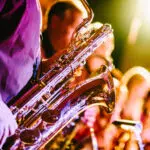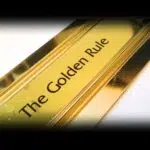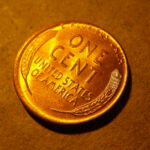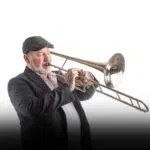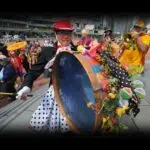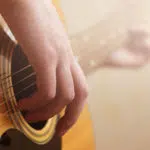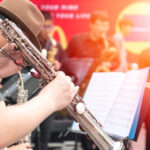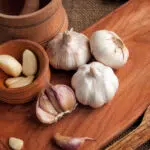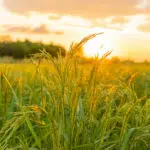This April, jazz up for a month to celebrate Jazz Appreciation Month (JAM) to honor one of America’s earliest and iconic art forms. Rich with extraordinary heritage and cultural history, jazz music originated in the blues era in the early 20th century and bestowed the world with bebop tunes to which we can dance all night. Founded in 2001, JAM is a 30-day long festival held to learn and recognize the cultural significance of this hip music genre and the jazz pop stars, and offers a chance to jam to some boogie-woogie day in and out.
History of Jazz Appreciation Month
Jazz music is an enchanting blend of more than one ethnicity. It’s got the American and European interpretation of classical music that is spiced up with the influence of West African culture and folk songs. Jazz music has everything going for it — a melody that stays with you, the harmony that makes the notes sound fuller, a rhythm that beats with your heart, and the outstanding improvisations that set the genre apart.
It was first compiled by musicians in African-American communities in New Orleans, Louisiana, the United States by the late 19th century and early 20th century. Characterized by blues notes, jazz became the signature dancing music at nightclubs while inspiring improvisation to bring something newer and hipper every time as the music evolved.
In 2001, Jazz Appreciation Month was founded by John Edward Hasse who was a curator at the Smithsonian National Museum of American History. Besides appreciating jazz literally all April long, the event was marked to hold aloft the history and heritage of the genre that has truly enlivened our lives with dance and disco.
JAM was initially funded by the Ella Fitzgerald Charitable Foundation. It encourages people every April to participate in jazz-related activities, sponsors jazz music releases, and appreciates jazz musicians of all ages. So gear up to kickstart every April with Miles Davis put on loop and end the month with John Coltrane’s “Giant Steps.”
Jazz Appreciation Month timeline
‘Jass’ as it was originally called, is drawn from ragtime, blues, and popular songs by African-Americans.
From solo stars and bandleaders to women saxophonists and pianists, jazz music flourishes as a broad youth culture.
Conservatoires in Britain began offering degree courses in jazz along with books that are published out of burgeoning scholarly interest.
BBC introduces the ‘Young Jazz Musician of the Year’ competition, launching many jazz newcomers-turned-superstars.
Jazz Appreciation Month FAQs
Who is the founding father of Jazz?
Louis Armstrong, born in New Orleans, perfected the improvised jazz solo.
Why is it called jazz?
The term ‘jazz’ means energy, vitality, and enthusiasm that fits the soul of the music. It is originally derived from the word ‘jasm’ meaning spirit and energy.
When was Jazz Appreciation Month first held?
In April 2001.
How To Celebrate Jazz Appreciation Month
Attend Jazz concerts
Find out which concerts are featuring jazz musicians in your area this April to enjoy pure, unplugged jazz beats with your friends and family.
Visit New Orleans
Take a trip to New Orleans, the birthplace of revolutionary jazz music, and explore the vibrant city with its round-the-clock nightlife, live music, and cuisine. Set aside the month of April to revel in the glory of the jazz scene in the city that’s going to jazz up like no other during JAM!
Jazz it up everywhere
Dedicate April to jazzing up whenever you get the chance to. Read books about jazz history, listen to the ’90s jazz songs on the radio, or grab a saxophone and upload a selfie with hashtag #JazzAppreciationMonth to spark conversations.
5 Facts About Jazz That Will Blow Your Mind
Jazz is a slang word
There were several early versions of the term ‘jazz’ including ‘jass’ and ‘jism,’ which is an African slang word with sexual connotations.
It ‘turns off’ a part of the brain
According to research, jazz musicians, when improvising, turn off the dorsolateral prefrontal and lateral orbital regions linked to self-censoring and inhibition and switch on the medial prefrontal cortex that lets self-expression flow.
It’s creative, soothing, and immunizing
Not just for jazz magicians — jazz music can boost creative brain waves, improve immunity against viral and bacterial infections, and reduce anxiety.
Jazz cats and alligators
Jazz musicians like to call themselves ‘jazz cats’ and before that, they addressed each other as ‘alligators’, or ‘gate’ for short.
Dozens of dance forms
Jazz music has led to many new dances in America including the Charleston, black bottom, the shimmy, the trot, and the tango.
Why We Love Jazz Appreciation Month
It gives us a full month of jazz music!
Who doesn’t love to shake a leg at the soulful music tunes? April gives us plenty of days and nights to dance to the beats, bop our heads, and watch the stress ebb away.
It’s inclusive, democratic, and powerful
Unlike other music genres, jazz emanated from people who were underclass and descended from slaves. They were oppressed by mankind yet invented one of the greatest musical gifts of all time. This has never been the case before. The soulful history of jazz is as heartwarming as the thrum of its brass.
It’s both group and individualistic music
Only rare music art forms combine both collectivism and individualism. Jazz has evolved from the great works of jazz bands as well as soloists, each contributing equally to the inclusivity of beautiful jazz music.
Jazz Appreciation Month dates
| Year | Date | Day |
|---|---|---|
| 2026 | April 1 | Wednesday |
| 2027 | April 1 | Thursday |
| 2028 | April 1 | Saturday |
| 2029 | April 1 | Sunday |
| 2030 | April 1 | Monday |

